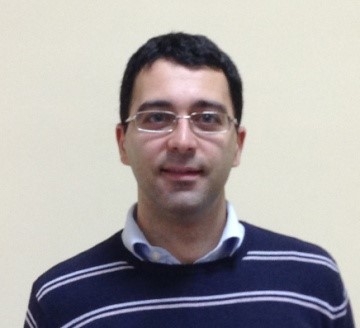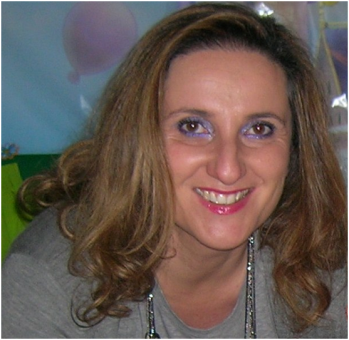Abstract
Among medical applications, the role of instrumentation and measurement (I&M) is particularly significant in physical rehabilitation, where objective measurements are needed to evaluate and keep track of the motor capabilities of the patients needing or being subjected to a rehabilitation treatment.
For example, an important parameter, both in determining the motion capability of the patient and in monitoring their progresses during the rehabilitation treatment, is the Range Of Motion (ROM), which is defined as the amount of movement through a particular plane, expressed in degrees, that can occur in a joint.
Recent I&M technologies allows not only to measure the ROM, but to track the whole movement of the patient, and observing all the kinematic parameters. Moreover, compact and lightweight systems became available, allowing the motion tracking during physical treatment also at home.
The aim of the tutorial is to present the technologies of motion tracking in medical rehabilitation. Therefore, first the main applications of motion tracking in medical rehabilitation will be briefly reviewed. Then, the main technological solutions will be presented. In particular, vision-based - with and without markers systems commonly employed as laboratory equipment will be presented, as well as the solutions based on Body Area Sensor Networks that, although not offering the same accuracy, allow a broader use, even outside the rehabilitation center.
For each of these technologies, the main trends and challenges of the research will be drawn and some details about the uncertainty evaluation will be given.
Presenter Bios
Luca De Vito

Luca De Vito achieved the master's degree "cum laude" in year 2001 in Software Engineering from University of Sannio presenting a thesis work dealing with automatic classification and characterization of digitally modulated signals. Then, he joined the research activities carried out at the Laboratory of Signal Processing and Measurement Information of the University of Sannio, Benevento.
He achieved the PhD in Information Engineering in year 2005, from the University of Sannio.
In 2008 he joined the Department of Engineering of the University of Sannio, as an Assistant Professor in Electric and Electronic Measurement.
In Dec. 2013, he received the National Academic Qualification as Associate Professor.
Since February 2015 he collaborates with the Magnetic Measurement (TE-MSC-MM), the Controls and Electrical Support (TE-CRG-CE) and the Hadron Synchrotrons Coherent Effects (BE-ABP-HSC) Sections of CERN.
He is Senior member of the IEEE and member of the IEEE Instrumentation and Measurement Society (IMS), of the IEEE Aerospace and Electronic Systems Society (AESS) and of the IEEE Standard Association.
He supported the activities of the IEEE IMS TC-10, by contributing to the IEEE Std. 1241, published in 2010, the IEEE Std. 1658, published in 2011, and the IEEE Std. 181, published in 2011, but he also participated the development of the IEEE Std. 1057-2007.
He is Young President of the Armed Forces Communications and Electronics Association (AFCEA) Naples Charter.
He has been Technical Program chair of the 20th IMEKO TC-4 International Symposium, held in Benevento, in 2014, Technical Program co-chair of the 10th IEEE International Symposium on Medical Measurements and Applications, held in Turin, in 2015, of the 1st IMEKO TC-4 International Workshop on Metrology for Geotechnics, held in Benevento in 2016, of the 11th IEEE International Symposium on Medical Measurements and Applications, held in Benevento in 2016, and of the 12th IEEE International Symposium on Medical Measurements and Applications, held in Rochester, MN, USA, in 2017.
He published more than 100 papers on international journals and conference proceedings, mainly dealing with measurements for the telecommunications, data converter testing and biomedical instrumentation.
At the present time he is developing his research work in digital processing for measurement in telecommunications, data-converters and biomedical instrumentation.
Maria Riccio

Maria Riccio received the Master's degree in Software Engineering from University of Sannio, Italy in Benevento, in 2001, with a thesis dealing with “A broker-based hierarchic architecture for grid-computing”. She gained the Ph.D degree in Information Engineering from University of Sannio, Italy, in 2010, with a thesis dealing with “Distance Learning Services in Measurement Field for Lifelong Learning”. From 2002 until 2010 she was responsible of the research area in Didagroup S.p.A. that was the main Italian enterprise for distance learning technologies and methodologies. Since 2010, she has been a Postdoctoral Researcher of Electrical and Electronic Measurements at the Department of Engineering - University of Sannio. Her main research interests include: i) enhanced learning technologies, ii) Wireless Sensor Network for traffic safety, and iii) Body Area Sensor Network for motion-tracking in physical rehabilitation.
She is Senior member of IEEE and member of the IEEE Instrumentation and Measuremente Society (IMS) and of the IEEE Aerospace and Electronic Systems Society (AESS). She is author and co-author of more than 40 papers published on international Journals and conference proceedings. She is reviewer of international journals and conferences. She was chair and organizer of Special Sessions during the IEEE International Symposium on Medical Measurements and Applications of 2016 and 2015. She received the “Best Paper” Award at Instrumentation and Measurement Technology Conference, 2006 - IMTC 2006, for the paper “Remote Didactic Laboratory "G. Savastano": the Italian Experience for the E-learning at the Technical Universities in the Field of the Electrical and Electronic Measurements, Overview on Didactic Experiments” presented during the Special Session “Multimedia tools for education in instrumentation and measurement”. She is owner of some patents.








